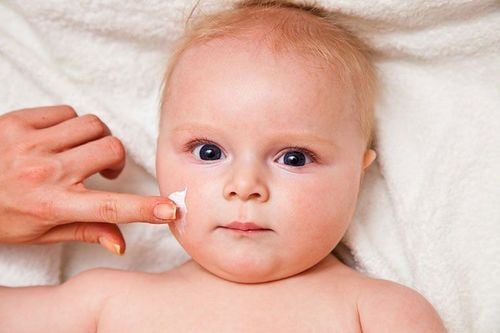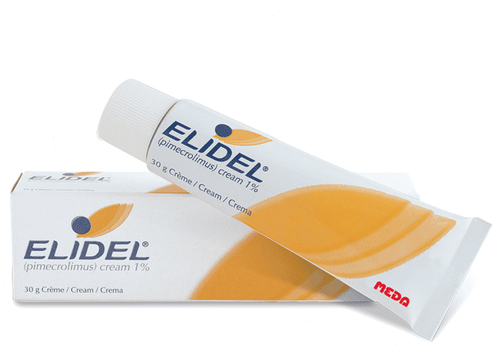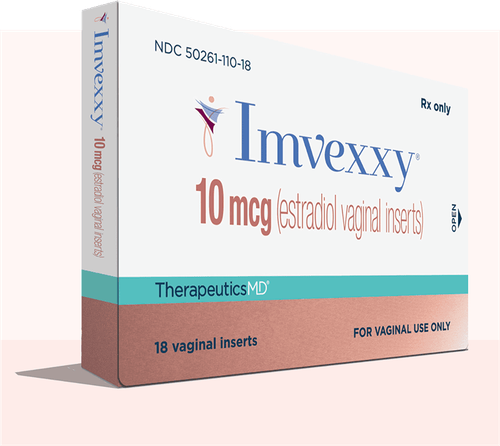This is an automatically translated article.
Hormonal acne is a type of acne that is caused by fluctuations in the levels of hormones your body produces. This type of acne is common, affecting anyone, depending on age.1. What is hormonal acne?
Hormonal acne is a type of acne related to the change of hormones in each person's body, and is commonly known as acne . Hormonal acne can appear in any age group but is most common during puberty, especially in women. In addition, hormonal acne often appears during the menstrual cycle or menopause for women.
It is estimated that worldwide about 50% of women between the ages of 20 and 29 suffer from hormonal acne. There are many different opinions about hormonal acne, but hormone imbalance is the leading cause of this condition.
1.1. Some features of hormonal acne
During puberty, hormonal acne often appears on areas of the skin such as the forehead, nose, and chin. However, when you reach adulthood, hormone imbalance acne tends to appear on the lower part of the face including the cheeks and the skin around the jawline.For some people, hormonal acne takes the form of blackheads, whiteheads, or small bumps or cysts. Acne cysts are located deep under the skin, carrying all the characteristics of inflammation such as swelling, heat, redness, and pain.
Hormonal acne can be caused by an imbalance of hormones in the following cases:
Menstrual cycle Polycystic ovary syndrome Perimenopause and menopause in women Excessive increase in blood levels androgen levels
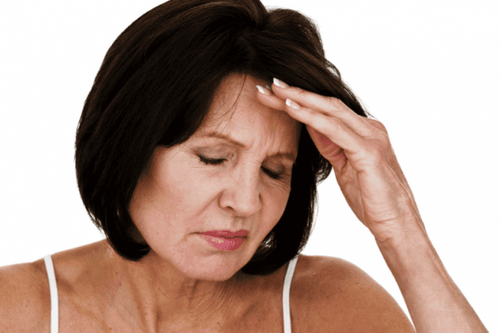
Mụn nội tiết thường xuất hiện ở thời kì tiền mãn kinh hoặc mãn kinh
Specifically, the above hormonal changes can make acne worse through ways such as:
Causes overall skin inflammation Increases sweat and sebum secretion from the pores Causes the skin to become inflamed. Clogged skin cells in hair follicles Create conditions for certain types of bacteria that are the cause of acne, typically Propionibacterium acnes.
1.2. Menopause acne
Acne that appears during perimenopause or menopause is actually a form of hormonal acne. Women between the ages of 40 and 50 begin going through menopause. This phase sees a natural decline in female reproductive hormones and ends with the complete disappearance of the menstrual cycle.
In many cases, acne occurs at the time of menopause in a woman due to a decrease in estrogen hormone levels or due to an increase in androgen-type hormones, especially testosterone. Acne can also appear even when a woman is taking hormone replacement therapy (HRT) to relieve symptoms of menopause. This is because HRTs use some stream of protein hormones to replace the estrogen and progesterone that the body loses. The hormone progestin causes pores to widen, creating conditions for dirt and bacteria to enter and form acne.
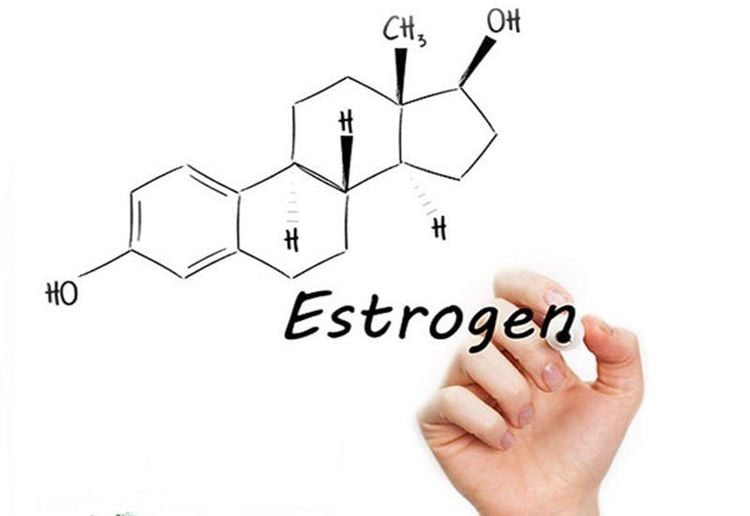
Sự sụt giảm của estrogen gây ra mụn trứng cá
2. Treatment of hormonal acne
2.1. Traditional treatment for hormonal acne
Experts have confirmed that severe hormonal acne cannot be treated with conventional facial cleansers or lotions. This is because hormonal acne often takes the form of cysts, forming deep under the skin and beyond the reach of most medications or topical creams.
Therefore, hormonal acne treatment often has to apply drug treatments to balance hormone levels to clear the skin from the inside. Some hormonal acne treatments can include:
Birth control pills: Oral contraceptives are especially effective in the treatment of hormonal acne because they contain ethinyl estradiol along with drospirenone, norgestimate and norethindrone. These four chemicals have the ability to balance hormone levels in the body, helping to reduce hormonal acne, especially during the ovulatory phase of the menstrual cycle. Oral contraceptives are contraindicated for people with a history of blood clots, high blood pressure, or breast cancer ......
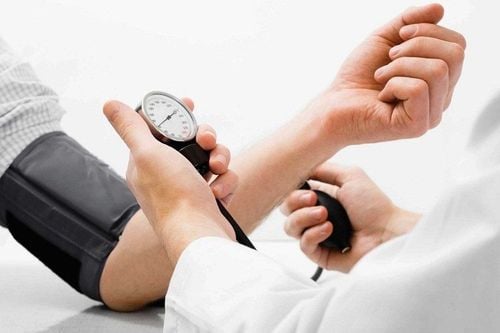
Bệnh nhân tăng huyết áp chống chỉ định dùng thuốc tránh thai để điều trị mụn nội tiết
Anti-androgen: Anti-androgen drugs work by reducing the male hormone androgen. Androgen is a natural hormone found in both men and women. However, when androgen levels are too high, they can cause acne problems by interfering with the regulation of hair follicles as well as increasing sebum production. Although aldactone is mainly used to treat hypertension, it also has an androgen-reducing effect. In other words, it can prevent your body from producing more androgens and help stabilize hormone levels. Retinoids: If you have mild hormonal acne, you may want to consider using some topical retinoids that contain retinoids. Retinoids are derived from vitamin A, contained in many creams, gels ... available at drugstores. It is important when using retinoids to apply sunscreen regularly because retinoids can increase the risk of sunburn.
2.2. Natural hormonal acne treatment
In some cases, hormonal acne treatments based on naturally derived products can be used to reduce mild hormonal acne.
Natural treatments often do not come with the worrisome side effects of traditional treatments, but sometimes their effectiveness is not as expected. Some types of natural products used to treat hormonal acne include:
Green tea essential oil: Green tea essential oil works by reducing inflammation - the main cause of acne. One study showed that applying a cream containing 5% green tea oil directly to the skin reduced symptoms in study participants with mild to moderate hormonal acne. Green tea essential oil is available in a variety of skin care products such as cleansers and toners. In its pure form, green tea essential oil needs to be diluted with some carrier oils such as coconut oil, olive oil... before being used to apply directly to the acne-affected skin. Alpha hydroxy acid (AHA): AHA is a plant-based acid that is rich in citrus fruits. AHAs have the ability to remove dead cells that clog pores, thereby minimizing the formation of acne.

Tinh dầu trà xanh là một phương pháp điều trị mụn nội tiết tự nhiên
Types of skin care products that are high in AHAs include masks and OTC creams. Like retinoids, AHAs increase your skin's sensitivity to the sun, so it's important to wear sunscreen regularly while treating acne with AHAs.
Green Tea : Unlike using green tea essential oil to apply directly to acne-prone skin, drinking a few cups of green tea a day combined with skin care and hygiene can help you own a healthy skin. , clear acne. An abnormal change in the endocrine system can cause a condition known as hormonal acne. The timing of hormonal changes varies from person to person, so proactive prevention is essential.
It usually takes 8 to 10 weeks for hormonal acne treatments to work. If the acne does not go away over time, see a doctor or a dermatologist for advice and a long-term treatment plan or a combination of different methods to maximize the effectiveness of treatment. .
Vinmec International General Hospital is one of the hospitals that not only ensures professional quality with a team of leading medical doctors, modern equipment and technology, but also stands out for its examination and consultation services. comprehensive and professional medical consultation and treatment; civilized, polite, safe and sterile medical examination and treatment space.
Customers can directly go to Vinmec Health system nationwide to visit or contact the hotline here for support.
Articles refer to sources: medicalnewstoday.com, healthline.com




